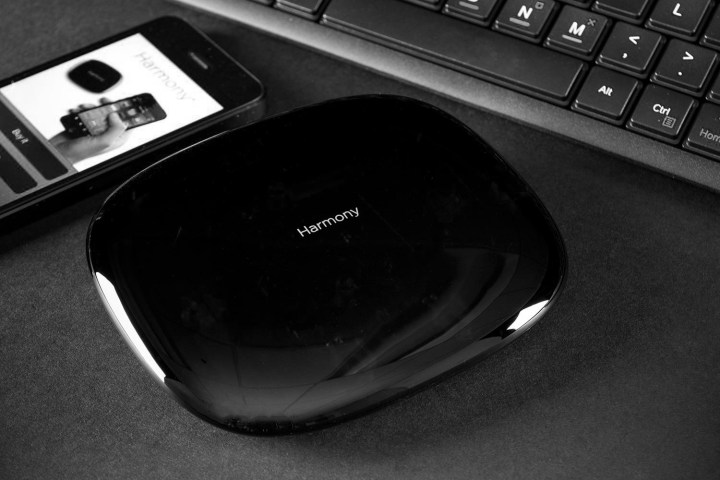
If you bought a Logitech Harmony Link universal remote hub back in the past few years, you got some bad news on Thursday. It’s going to break in 2018.
Not because the chips inside will become obsolete, or because your cat has almost finished gnawing through its power cable, but because Logitech will kill it.
By pulling the plug on the cloud-based service that keeps Harmony Link, Logitech will “brick” its own products.
Not surprisingly, the internet erupted in a furor after the announcement, and Logitech has since offered to replace soon-to-be-obsolete Harmony Links with newer Harmony Hubs. PR crisis averted! Yet even if you never dreamed of consolidating your 13 remote controls into an iPad with the Harmony Link, this should be an important wake-up call. Nothing that lives in the cloud is really “forever.”
Here and gone
This shouldn’t be a revelation. We’ve known it from the first days we tentatively started uploading things to the cloud, debating its merits as we saved local copies and backups “just in case.” Now that cloud-based services have infiltrated our lives with their convenience, we’ve forgotten that the vital services we take for granted could disappear in an instant.
I rely on Google Photos to store a decade worth of photographs that exist nowhere else. My Spotify library is just as precious to me, and as carefully curated as the MP3s I painstakingly pirated in middle school. Nearly every show or movie I watch streams from Netflix.

These services feel as real as the bookshelf I used to stack with DVDs, books, and music. But like a shoddy Ikea bookshelf, the cloud can break at any time. And unlike the shelf, you don’t get to fish your stuff out of a pile of fractured MDF.
A company could go out of business. Or shut down one of its products. You could even be locked out by a glitch.
Plastic isn’t permanent
As Logitech’s productcide has demonstrated, the same fragile lifespan now extends to hardware. Have you ever noticed how many devices now require you to set up an account and login before they can do anything? Amazon’s Cloud Cam is the latest example to cross our review desk — but this approach has become de rigeur in the smart-home world.
Nothing that lives in the cloud is really “forever.”
Even if you don’t log in to a cloud account, many devices require an app to control them, which you’ll need to download from — you guessed it — a cloud-based app store. I don’t anticipate Apple will shutter tomorrow, but hopefully you don’t own any hardware that requires you to download an app from the Windows Phone Store, or BlackBerry App World.
You expect Spotify to sputter out when you stop paying your monthly bill. But what about hardware you paid for once, with the expectation it would work for years? What lifetime can you reasonably expect? What recompense can you expect from a company that kills its cloud prematurely? Logitech has decided to be generous in the facing of scathing criticism. Will the next company?

We’ve grappled with “evaporating clouds” before. Online gamers know that the MMO fantasy worlds in games from World of Warcraft to Destiny exist only on servers that hum along in a data center, costing developers money. When dust bunnies and electric bills add up, worlds die. Fans of games like Asheron’s Call and City of Heroes can recall congregating online to say goodbye in the final hours, before the server fans whirred to a stop forever.
This isn’t a call to abandon the cloud. I think we can all agree that the convenience of having instant access to almost every song ever written through Spotify beats the hell out of carrying around a Discman with a scratched-up copy of Mellon Collie and the Infinite Sadness. And yes, your Cloud Cam really does need to connect to the cloud, unless you want footage of a break-in to disappear the moment a thief smashes the camera.
But don’t forget your deal with the devil. None of it is yours forever. Not even, as Logitech has shown us, the gadgets that will exist long after they’re capable of doing anything useful.



